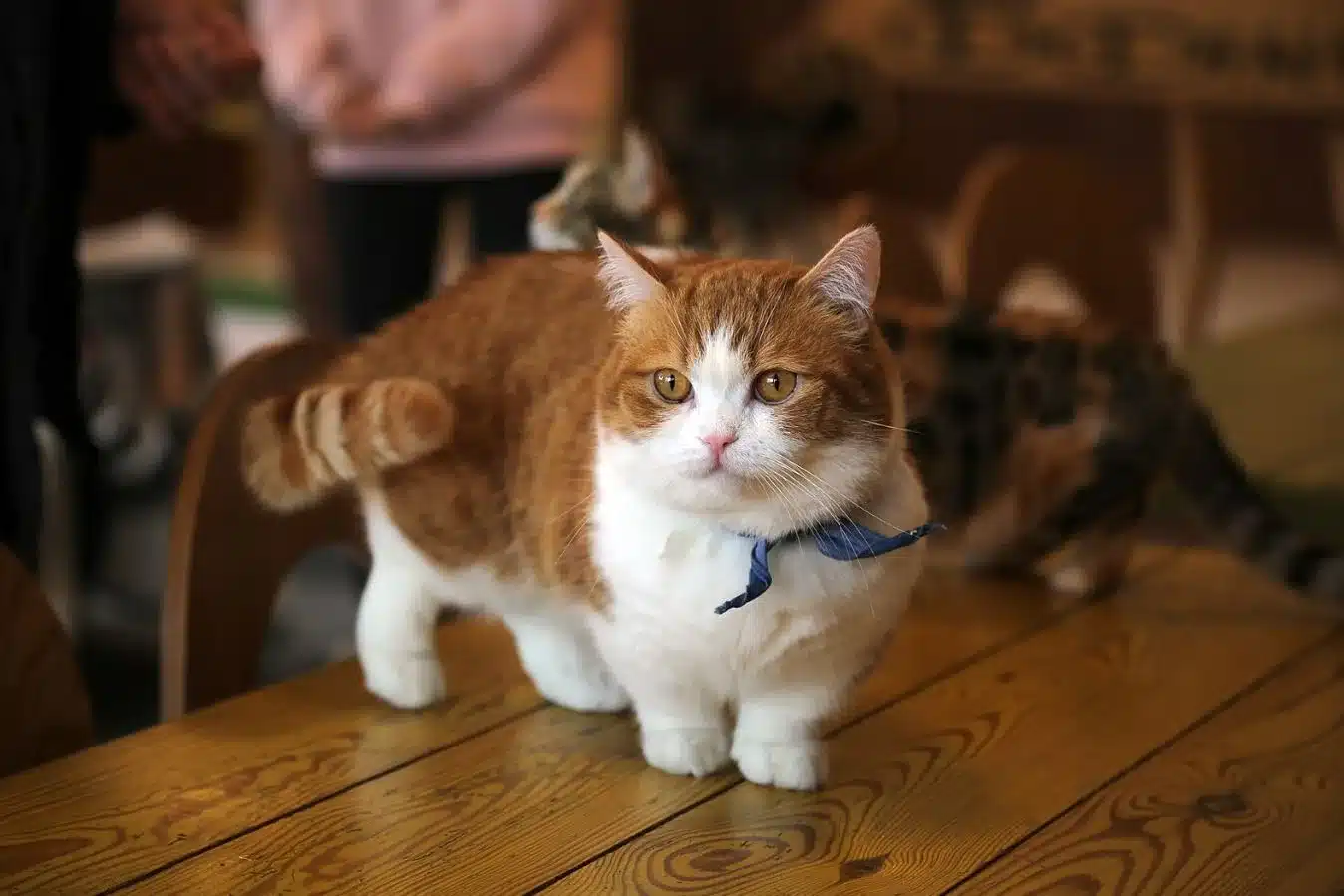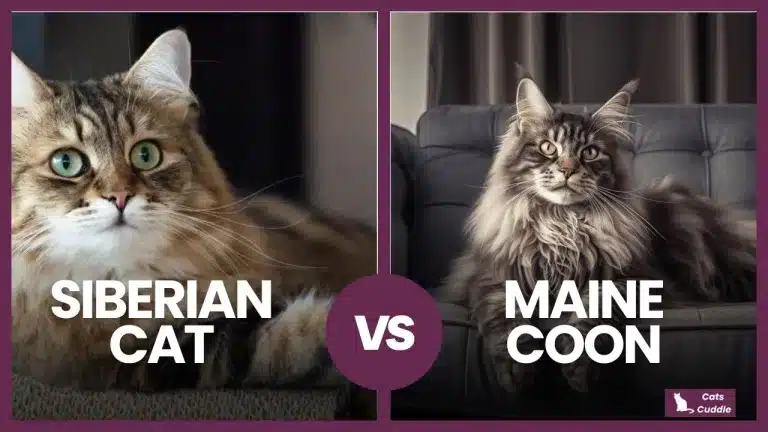Munchkin Cat Life Expectancy: How Long Do They Live? [2024]
The Munchkin cat, known for its distinctively short legs and affectionate nature, has captured the hearts of feline enthusiasts worldwide. Despite their small stature, these cats exhibit a lively and playful demeanor, making them beloved pet in many households. But how long do these charming creatures typically live? Understanding Munchkin cat life expectancy and the factors influencing their health is crucial for prospective and current owners aiming to provide the best care for their miniature companions.
Munchkin Cat Life Expectancy
Munchkin cats generally enjoy a life expectancy ranging from 12 to 15 years, aligning with the average lifespan of domestic cats. This duration, however, can fluctuate based on various genetic, dietary, and environmental factors.
By ensuring proper care and addressing specific health concerns, owners can potentially extend the life of their Munchkin cats, allowing them to enjoy a full and happy life.
Factors Influencing Munchkin Cat Lifespan
Genetic and Health Conditions
Munchkin cats are predisposed to certain health conditions due to their unique genetic makeup. Lordosis, a condition causing the curvature of the spine, and osteoarthritis are more common in Munchkins due to their short limb structure.
These conditions can affect their mobility and overall quality of life. Additionally, the genetic mutation responsible for their short stature, known as the lethal gene, plays a significant role in breeding practices and the health of the offspring.
Responsible breeding is crucial to avoid the transmission of this gene in a manner that could harm the kittens.
Diet and Nutrition
The longevity of Munchkin cats is significantly influenced by their diet and nutrition. Providing a balanced diet that meets their specific needs is essential for maintaining their health and vitality.
High-quality cat food, rich in nutrients, supports their bodily functions and prevents obesity, a common issue that can lead to serious health problems in Munchkin cats.
Obesity not only burdens their short legs but also increases the risk of diabetes, heart disease, and joint issues. Careful monitoring of their food intake and ensuring they receive all necessary vitamins and minerals can help Munchkin cats lead a healthier and potentially longer life.
Exercise and Activity
Despite their compact size, Munchkin cats are active and playful. Regular exercise is vital for their physical health and mental well-being. Engaging them in interactive play sessions helps to keep their muscles toned and prevents weight gain.
However, their unique physique means that they cannot jump as high or run as fast as other cats, so activities should be tailored to their capabilities.
Encouraging movement through toys and games can support their agility and prevent the onset of conditions like arthritis, which Munchkin cats are prone to due to their shortened limbs.
Regular Veterinary Care
Consistent veterinary check-ups are a cornerstone in managing the health and extending the life of Munchkin cats. Regular visits to the vet allow for early detection and treatment of potential health issues, including those common in Munchkins like heart conditions and respiratory disorders.
Vaccinations, parasite control, and routine health screenings can preemptively address problems before they become severe, thus improving the cat’s chances for a longer, healthier life. Veterinarians can also offer guidance on weight management and nutritional needs to keep these cats in optimal health.
Environmental and Lifestyle Factors
The environment in which Munchkin cats live plays a crucial role in their health and longevity. A safe, stress-free, and stimulating environment contributes to their well-being. Munchkins, with their sociable nature, thrive in settings where they receive ample attention and interaction.
Indoor living is often recommended to protect them from external threats and accidents, given their physical limitations. Creating a living space that includes opportunities for climbing, scratching, and playing can help keep them active and engaged, thus promoting a healthier lifestyle and potentially extending their lifespan.
Frequently Asked Questions (F.A.Q)
Are Munchkin cats genetically modified?
No, the short legs of Munchkin cats are not the result of genetic modification but are due to a naturally occurring autosomal dominant gene. This genetic trait is what defines them as Munchkins.
How big do Munchkin cats get?
Munchkin cats typically reach a height of about 6 to 9 inches and weigh between 6 to 9 pounds, making them smaller in stature compared to average-sized cats.
Do Munchkin cats have health issues?
While the gene causing their short legs hasn’t been directly linked to specific health problems, Munchkin cats can be prone to conditions like lordosis, osteoarthritis, and other common feline health issues. Regular veterinary care can help manage these conditions.
Are Munchkin cats hypoallergenic?
No, Munchkin cats are not hypoallergenic. Regular grooming, especially for long-haired varieties, can help manage dander and shedding.
How do Munchkin cats fare with other pets?
Munchkin cats generally get along well with other pets, including dogs and other cats. They are known for their friendly and social nature but should be introduced carefully to ensure compatibility and safety.
Wrapping Up
Munchkin cats, with their unique appearance and endearing personalities, make delightful companions. Their life expectancy, while influenced by various factors, can be maximized through attentive care, proper nutrition, and a loving environment. Understanding the specific needs of your Munchkin cat will enable you to provide the best possible care, ensuring a long, joyful life together.


![Torbie Cat: History & Origin, Personality, Care [2024]](https://catscuddle.com/wp-content/uploads/2024/03/Torbie-Cat-1-768x432.webp)
![Munchkin Cats Breed Guide: History, Personality, Care [2024]](https://catscuddle.com/wp-content/uploads/2024/03/Munchkin-Cats-Breed-Guide-768x575.webp)

![Dilute Tortie – What Makes Them So Special? [2024]](https://catscuddle.com/wp-content/uploads/2024/03/Dilute-Tortie-3-768x490.webp)
![How Much Does a Munchkin Cat Cost? [2024]](https://catscuddle.com/wp-content/uploads/2024/03/How-Much-Does-a-Munchkin-Cat-Cost-768x510.webp)
![What are Magpie Cats? – Breed, Personality, Care [2024]](https://catscuddle.com/wp-content/uploads/2024/03/What-are-Magpie-cats-768x441.webp)